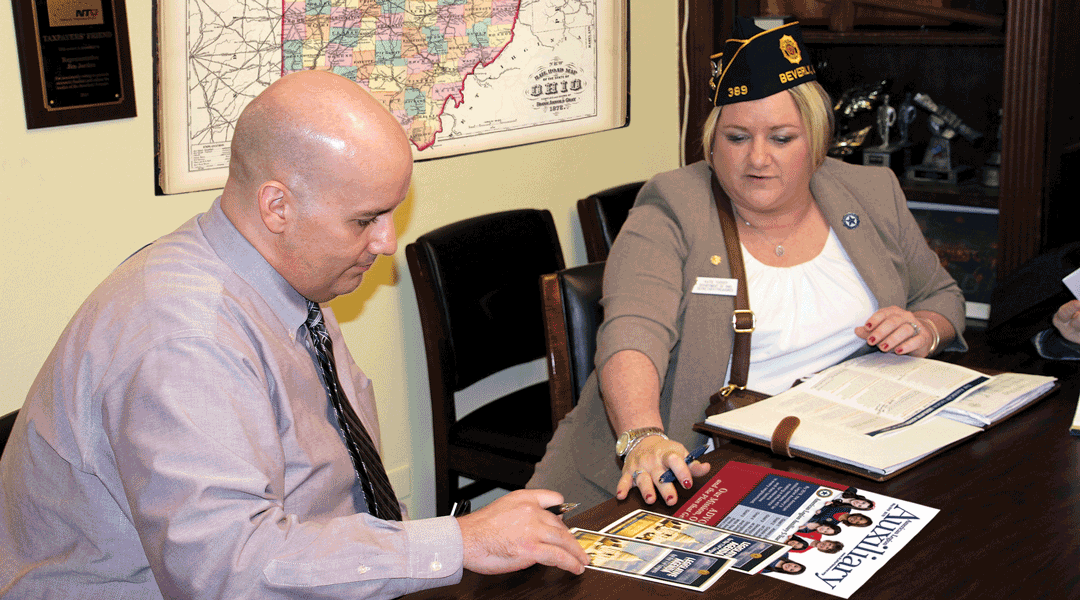
The American Legion Auxiliary supports the legislative priorities adopted by The American Legion.
In local Congressional Districts and in Washington, D.C., American Legion Auxiliary members work to keep veterans' issues in front of legislators, strengthening our mission to serve veterans, servicemembers and their families.
While we may think that one voice may not make a difference on its own, that one voice added to the voice of others quickly becomes a collective power of influence that can impact the decisions of our elected officials. Joining together, Auxiliary members can and do make a difference when they advocate for veterans, servicemembers and their families.
The American Legion Auxiliary supports the public policy positions of The American Legion. The American Legion regularly adopts and renews legislative intent resolutions. The resolutions reflect the will of the membership and serve as instructions to Legion family officers and staff as to which legislative issues to monitor and what positions to take. The updated legislative agenda for the 119th Congress 1st Session is as follows:
Suicide prevention: In an effort to win “The War Within,” The American Legion urges Congress to fully fund VA’s suicide-prevention outreach budget, mental health treatment services and peer-support programs.
Community care: The American Legion urges Congress to hold the Office of Community Care accountable for the continuity of veteran care, improve communication between VA and community providers, and strengthen transportation services to community care appointments for rural health veterans.
Compensation and Pension (C&P) examinations: Congress must ensure that VA holds its vendors to higher C&P examination standards. The quality review process for VA-contracted medical examiners must be made transparent, and Congress must ensure more effective incentives, stricter oversight mechanisms, mandatory quality reviews and severe penalties for non-compliance.
Quality of Life: The Legion is calling for accelerated implementation and oversight of approved funding for military pay, benefits and quality-of-life infrastructure programs.
Border security: The American Legion implores lawmakers to work together on behalf of Americans and Border Patrol agents to strengthen national security by stopping threats at our borders.
Fund State Department and foreign operations: As DoD prepares for a potential conflict with China, America needs a robust and well-funded foreign service to counter authoritarian influence.
End veteran homelessness: Policies must include comprehensive support for at-risk and homeless veterans, including counseling, assistance in accessing care and benefits, financial and career resources, and business development opportunities.
These materials are available at the Legion’s Legislative Center at www.legion.org/legislative.
The American Legion’s Grassroots Action Center offers information to stay informed on the issues and tools to communicate online with lawmakers and the media about the organization’s priorities.